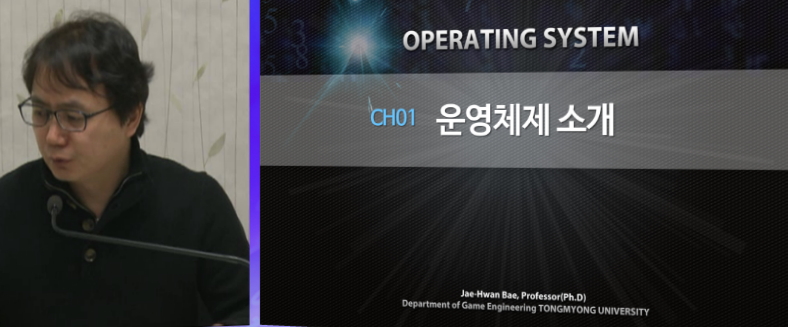Objectives: Health systems are shifting from traditional methods of healthcare delivery to delivery using digital applications. This change was introduced at a primary care centre in Chandigarh, India that served a marginalised population. Afterestabl...
http://chineseinput.net/에서 pinyin(병음)방식으로 중국어를 변환할 수 있습니다.
변환된 중국어를 복사하여 사용하시면 됩니다.
- 中文 을 입력하시려면 zhongwen을 입력하시고 space를누르시면됩니다.
- 北京 을 입력하시려면 beijing을 입력하시고 space를 누르시면 됩니다.


Stakeholders’ Perceptions of the Implementation of a Patient-Centric Digital Health Application for Primary Healthcare in India
한글로보기https://www.riss.kr/link?id=A107899438
-
저자
Dharamjeet Singh Faujdar (Postgraduate Institute of Medical Education and Research) ; Tarundeep Singh (Postgraduate Institute of Medical Education and Research) ; Manmeet Kaur (Postgraduate Institute of Medical Education and Research) ; Sundeep Sahay (University of Oslo) ; Rajesh Kumar (Postgraduate Institute of Medical Education and Research)

- 발행기관
- 학술지명
- 권호사항
-
발행연도
2021
-
작성언어
English
- 주제어
-
등재정보
KCI등재,SCOPUS,ESCI
-
자료형태
학술저널
- 발행기관 URL
-
수록면
315-324(10쪽)
-
KCI 피인용횟수
0
- 제공처
- 소장기관
-
0
상세조회 -
0
다운로드
부가정보
다국어 초록 (Multilingual Abstract)
Objectives: Health systems are shifting from traditional methods of healthcare delivery to delivery using digital applications. This change was introduced at a primary care centre in Chandigarh, India that served a marginalised population. Afterestablishing the digital health system, we explored stakeholders’ perceptions regarding its implementation. Methods: Ethnographicmethods were used to explore stakeholders’ perceptions regarding the implementation of the Integrated Health InformationSystem for Primary Health Care (IHIS4PHC), which was developed as a patient-centric digital health application. Data were collected using focus group discussions and in-depth interviews. Participatory observations were made of day-todayactivities including outpatient visits, outreach field visits, and methods of health practice. The collected information wasanalysed using thematic coding. Results: Healthcare workers highlighted that working with the digital health system was initiallyarduous, but they later realised its usefulness, as the digital system made it easier to search records and generate reports,rapidly providing evidence to make decisions. Auxiliary nurse midwives reported that recording information on computerssaved time when generating reports; however, systematic and mandatory data entry made recording tedious. Staff were apprehensiveabout the use of computer-based data for monitoring their work performance. Patients appreciated that theirprevious records were now available on the computer for easy retrieval. Conclusions: The usefulness of the digital health applicationwas appreciated by various primary healthcare stakeholders. Barriers persisted due to perceived needs for flexibilityin delivering healthcare services, and apprehensions continued because of increased transparency, accountability, and dependenceon computers and digital technicians.
참고문헌 (Reference)
1 Barello S, "eHealth for patient engagement : a systematic review" 6 : 2013-, 2016
2 Berwick DM, "What ‘patient-centered’ should mean:confessions of an extremist" 28 (28): w555-w565, 2009
3 Foley G, "Using grounded theory method to capture and analyze health care experiences" 50 (50): 1195-1210, 2015
4 Venkatesh V, "User acceptance of information technology : toward a unified view" 27 (27): 425-478, 2003
5 Michie S, "The behaviour change wheel : a new method for characterising and designing behaviour change interventions" 6 : 42-, 2011
6 Ndabarora E, "Systematic review of health data quality management and best practices at community and district levels in LMIC" 30 (30): 103-120, 2014
7 Pawson R, "Realist evaluation" Sage
8 Faujdar DS, "Public health information systems for primary health care in India : a situational analysis study" 8 (8): 3640-3646, 2019
9 Adane K, "Processing medical data : a systematic review" 71 (71): 27-, 2013
10 Runz-Jorgensen SM, "Perceived value of eHealth among people living with multimorbidity : a qualitative study" 7 (7): 96-111, 2017
1 Barello S, "eHealth for patient engagement : a systematic review" 6 : 2013-, 2016
2 Berwick DM, "What ‘patient-centered’ should mean:confessions of an extremist" 28 (28): w555-w565, 2009
3 Foley G, "Using grounded theory method to capture and analyze health care experiences" 50 (50): 1195-1210, 2015
4 Venkatesh V, "User acceptance of information technology : toward a unified view" 27 (27): 425-478, 2003
5 Michie S, "The behaviour change wheel : a new method for characterising and designing behaviour change interventions" 6 : 42-, 2011
6 Ndabarora E, "Systematic review of health data quality management and best practices at community and district levels in LMIC" 30 (30): 103-120, 2014
7 Pawson R, "Realist evaluation" Sage
8 Faujdar DS, "Public health information systems for primary health care in India : a situational analysis study" 8 (8): 3640-3646, 2019
9 Adane K, "Processing medical data : a systematic review" 71 (71): 27-, 2013
10 Runz-Jorgensen SM, "Perceived value of eHealth among people living with multimorbidity : a qualitative study" 7 (7): 96-111, 2017
11 Flatley Brennan P, "Patientcentered Information Systems" (1) : 79-86, 2000
12 Mannan R, "Is primary care ready to embrace e-health? A qualitative study of staff in a London primary care trust" 14 (14): 121-131, 2006
13 Sequist TD, "Implementation and use of an electronic health record within the Indian Health Service" 14 (14): 191-197, 2007
14 Tripathi S, Sharma R, Nagarajan S., "Health information systems in India: challenges and way forward" Munich Personal RePEc Archive (MPRA)
15 Li J, "Health care provider adoption of eHealth : systematic literature review" 2 (2): e7-, 2013
16 Faujdar DS, "Field testing of a digital health information system for primary health care : a quasi-experimental study from India" 141 : 104235-, 2020
17 Granja C, "Factors determining the success and failure of eHealth interventions : systematic review of the literature" 20 (20): e10235-, 2018
18 Lilford RJ, "Evaluating eHealth : how to make evaluation more methodologically robust" 6 (6): e1000186-, 2009
19 Peters DH, "Can computers improve patient care by primary health care workers in India" 18 (18): 437-445, 2006
20 Singh T, "Assessment of universal healthcare coverage in a district of North India : a rapid cross-sectional survey using tablet computers" 11 (11): e0157831-, 2016
21 Gagnon MP, "An integrated strategy of knowledge application for optimal e-health implementation : a multimethod study protocol" 8 : 17-, 2008
22 Talboom-Kamp EP, "An eHealth platform to manage chronic disease in primary care : an innovative approach" 5 (5): e5-, 2016
23 Kotze P, "A conceptual data model for a primary health care patient-centric electronic medical record system"
동일학술지(권/호) 다른 논문
-
- 대한의료정보학회
- Aravind Gandhi Periyasamy
- 2021
- KCI등재,SCOPUS,ESCI
-
- 대한의료정보학회
- 황승우
- 2021
- KCI등재,SCOPUS,ESCI
-
Mobile Health Technology and Healthcare Providers: Systemic Barriers to Adoption
- 대한의료정보학회
- Somayyeh Zakerabasali
- 2021
- KCI등재,SCOPUS,ESCI
-
- 대한의료정보학회
- Atakan Başkor
- 2021
- KCI등재,SCOPUS,ESCI
분석정보
인용정보 인용지수 설명보기
학술지 이력
| 연월일 | 이력구분 | 이력상세 | 등재구분 |
|---|---|---|---|
| 2023 | 평가예정 | 해외DB학술지평가 신청대상 (해외등재 학술지 평가) | |
| 2020-01-01 | 평가 | 등재학술지 유지 (해외등재 학술지 평가) |  |
| 2011-01-01 | 평가 | 등재 1차 FAIL (등재유지) |  |
| 2010-04-05 | 학술지명변경 | 한글명 : 대한의료정보학회지 -> Healthcare Informatics Research외국어명 : Journal of Korean Society of Medical Informatics -> Healthcare Informatics Research |  |
| 2009-01-01 | 평가 | 등재학술지 유지 (등재유지) |  |
| 2006-01-01 | 평가 | 등재학술지 선정 (등재후보2차) |  |
| 2005-01-01 | 평가 | 등재후보 1차 PASS (등재후보1차) |  |
| 2003-01-01 | 평가 | 등재후보학술지 선정 (신규평가) |  |
학술지 인용정보
| 기준연도 | WOS-KCI 통합IF(2년) | KCIF(2년) | KCIF(3년) |
|---|---|---|---|
| 2016 | 0.24 | 0.24 | 0.21 |
| KCIF(4년) | KCIF(5년) | 중심성지수(3년) | 즉시성지수 |
| 0.18 | 0.15 | 0.434 | 0.09 |




 KCI
KCI







